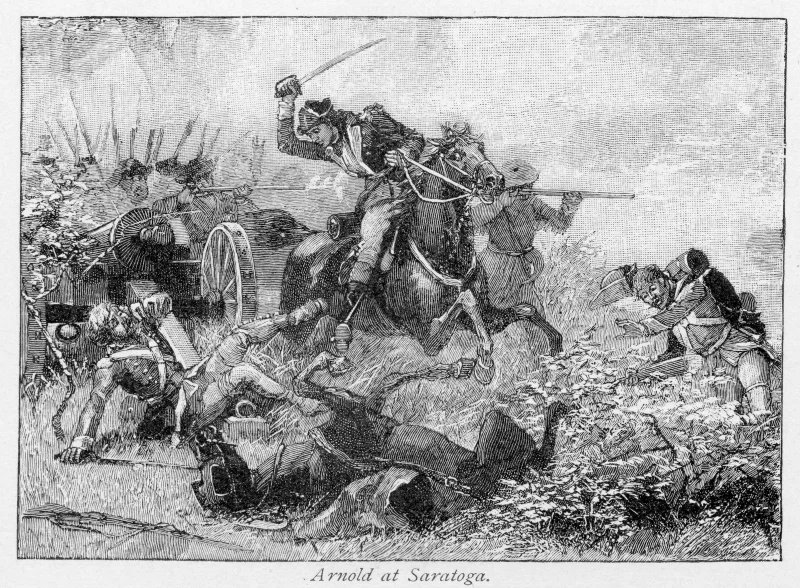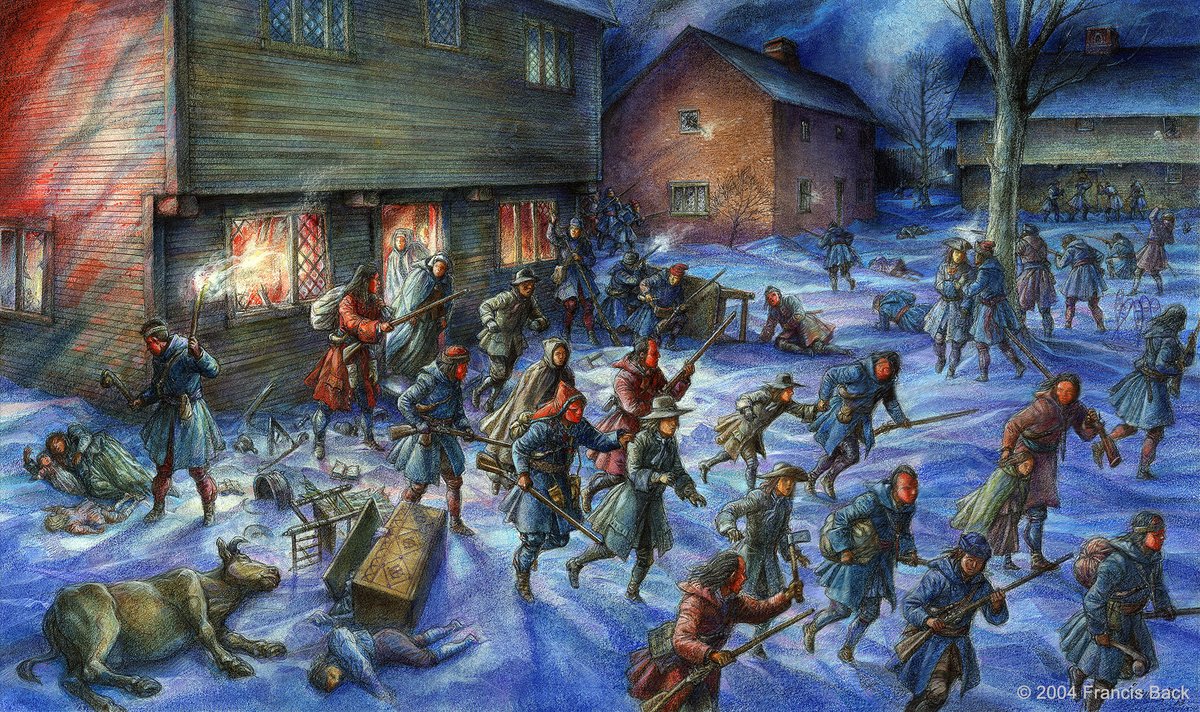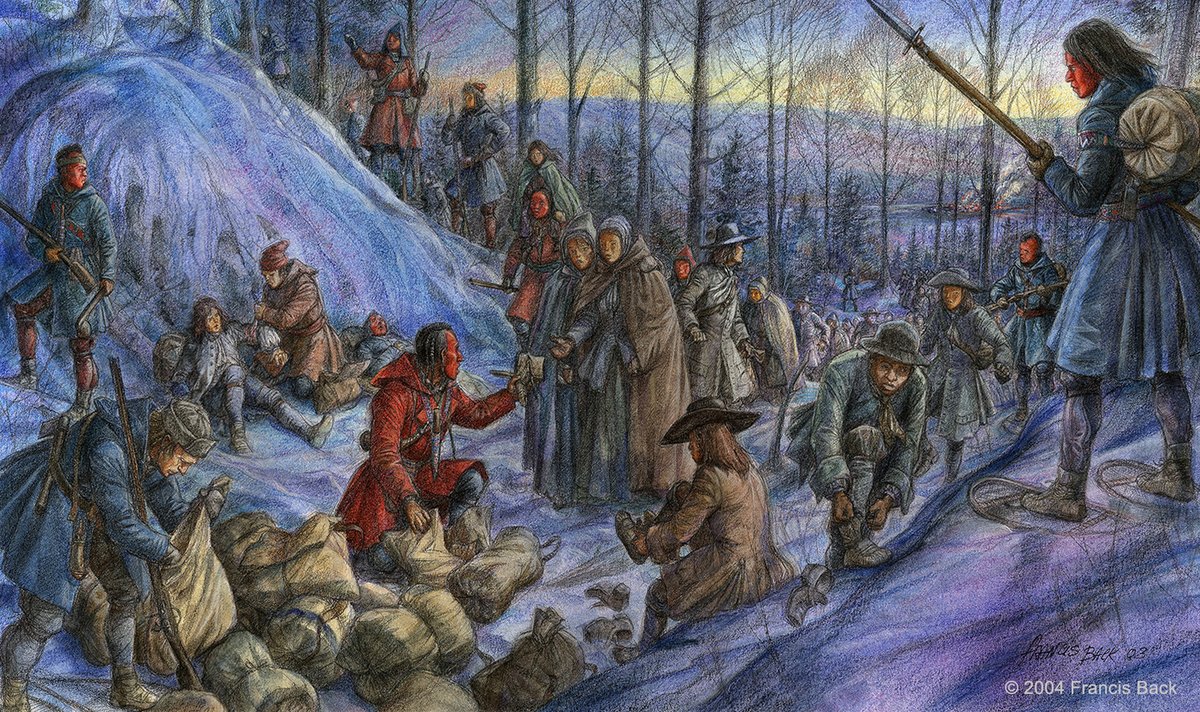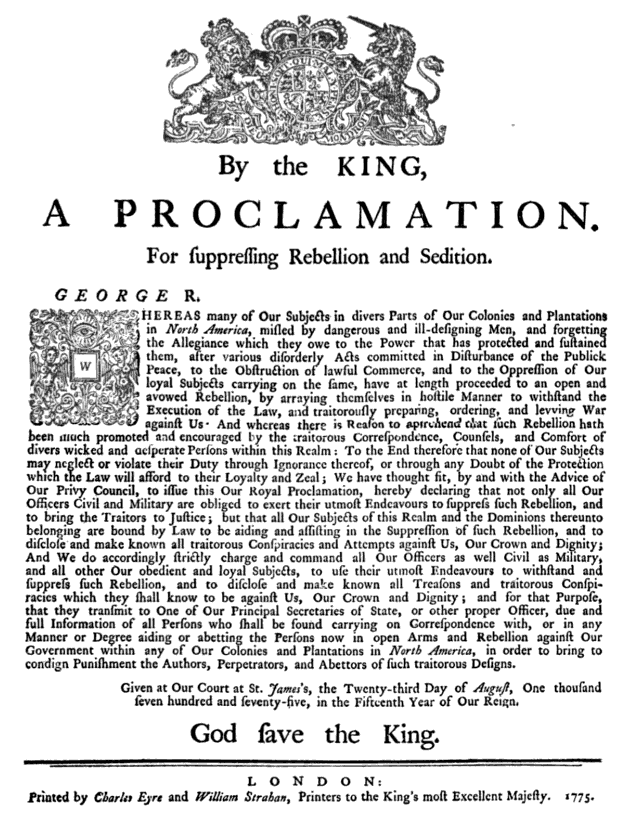1. So there was a guy named Benedict Arnold. His name is pretty famous within the USA. But the *reason* might be interesting. Do you recall? (Thread, cc @cookietpa)
General Arnold at Saratoga, being heroic.
General Arnold at Saratoga, being heroic.
2. We need to begin with the time period. Arnold lived 1741-1801. Quick quiz - what wars were conducted on now-US soil (meaning the region of the 13 colonies) during that time period? I'll check in with some answers below.
3. Great-grandmother Sarah Barnard was part of the Raid on Deerfield (aka Deerfield Massacre), but that was the winter 1803-1804, so that won't count but might offer some clues. Already a widow, she'd remarried, the captain of town militia, so lived in a fortified house.
4. Because she lived in a fortified house she survived the raid. Those captured (not including Grandma Barnard) were marched to Canada in the winter.
http://www.1704.deerfield.history.museum/home.do
http://www.1704.deerfield.history.museum/home.do
5. My point is that it's important to consider the context! So we'll check in with some answers below... please chime in :)
6. Within the USA - and within the past week - 1776 is a key date, right? So events that happened *before* 1776 are British colonial events, right? There's a sort of boundary here. Bear that in mind with our timeline.
https://en.wikipedia.org/wiki/Benedict_Arnold
https://en.wikipedia.org/wiki/Benedict_Arnold
7. Young Arnold was attracted by the sound of a drummer and attempted to enlist. Nope, Mom said no. That was 1755. (Which is before 1776, you will note.)
In 1757 he *did* enlist in the Connecticut Militia. This was the French and Indian War (and one of our answers).
In 1757 he *did* enlist in the Connecticut Militia. This was the French and Indian War (and one of our answers).
8. He was age 16 when he enlisted. Ladies, he was single! As of 1757 age 16 anyway.
He married 1767, ten years later. Sorry ladies! Fast forward.
He married 1767, ten years later. Sorry ladies! Fast forward.
9. He elected a Captain of the Connecticut Militia in March 1775. Now this is a super-important point. This is before 1776, right? So... an officer in the militia *of what country*?
Think about it... yup. So, what does that *mean*?
Think about it... yup. So, what does that *mean*?
10. He's a military officer *of England* in early 1775. That puts him subject to the High Treason law dating back to 1351. That's a lot of law!
But, just to make REALLY sure, the King had something to say.
But, just to make REALLY sure, the King had something to say.
11. The Royal Proclamation of Rebellion was issued in London on August 23, 1775. You will again note that this date is BEFORE 1776.
"For suppressing Rebellion and Sedition." Huh. I'd be grateful to just be a Captain and not a General who's in like Flynn, let me tell you.
"For suppressing Rebellion and Sedition." Huh. I'd be grateful to just be a Captain and not a General who's in like Flynn, let me tell you.
12. This, of course, is the bit that led to 1776 being a significant year.
https://en.wikipedia.org/wiki/Proclamation_of_Rebellion
https://en.wikipedia.org/wiki/Proclamation_of_Rebellion
13. But Time magazine notes "The official punishment for treason was execution by hanging, drawing and quartering."
Huh. Is that really a thing? https://time.com/5351222/benedict-arnold-traitor/
Huh. Is that really a thing? https://time.com/5351222/benedict-arnold-traitor/

 Read on Twitter
Read on Twitter





